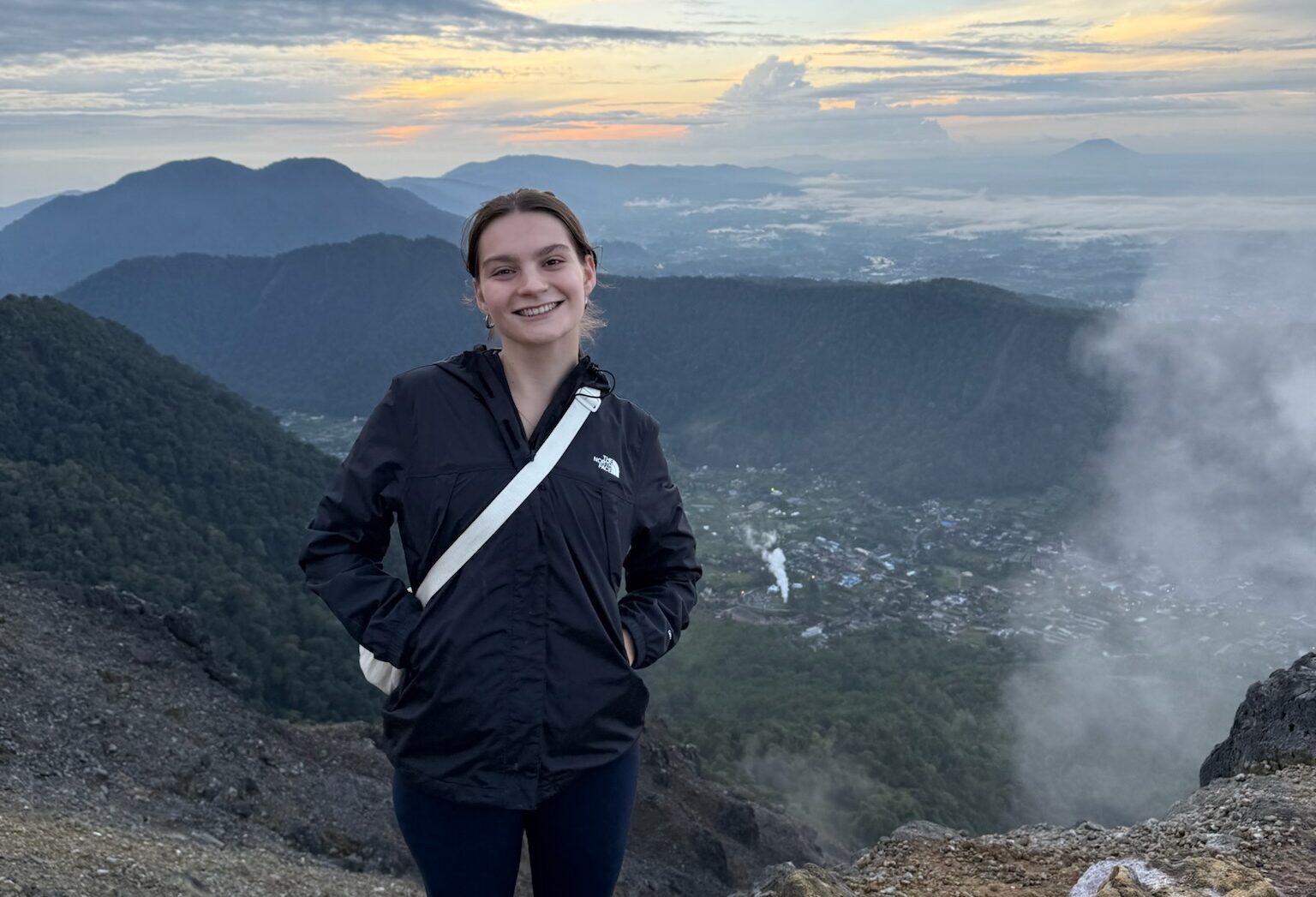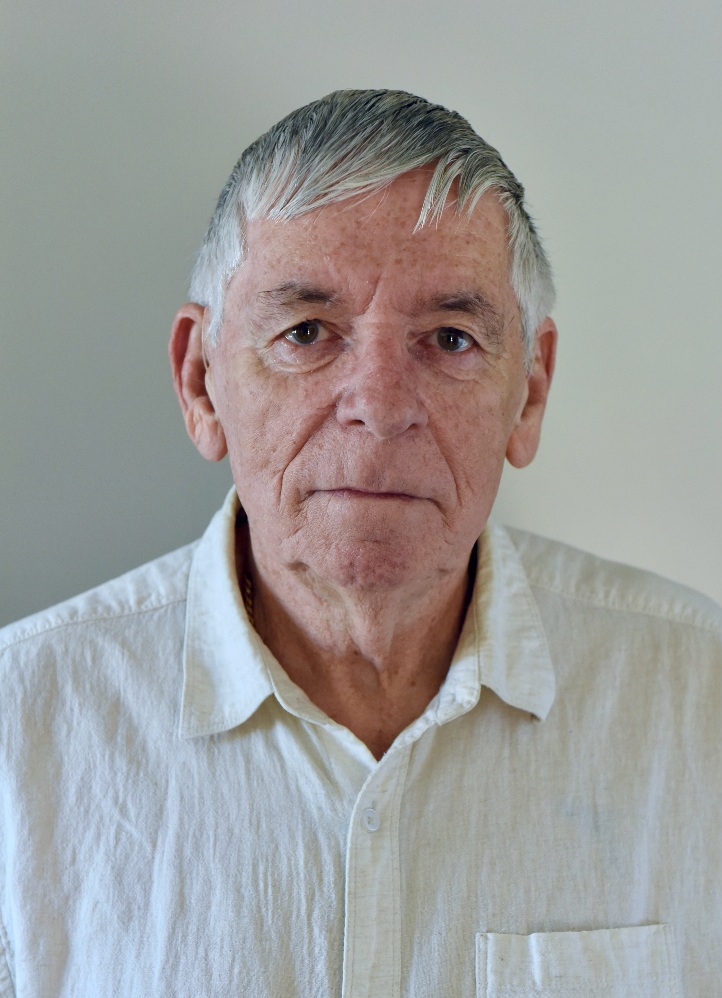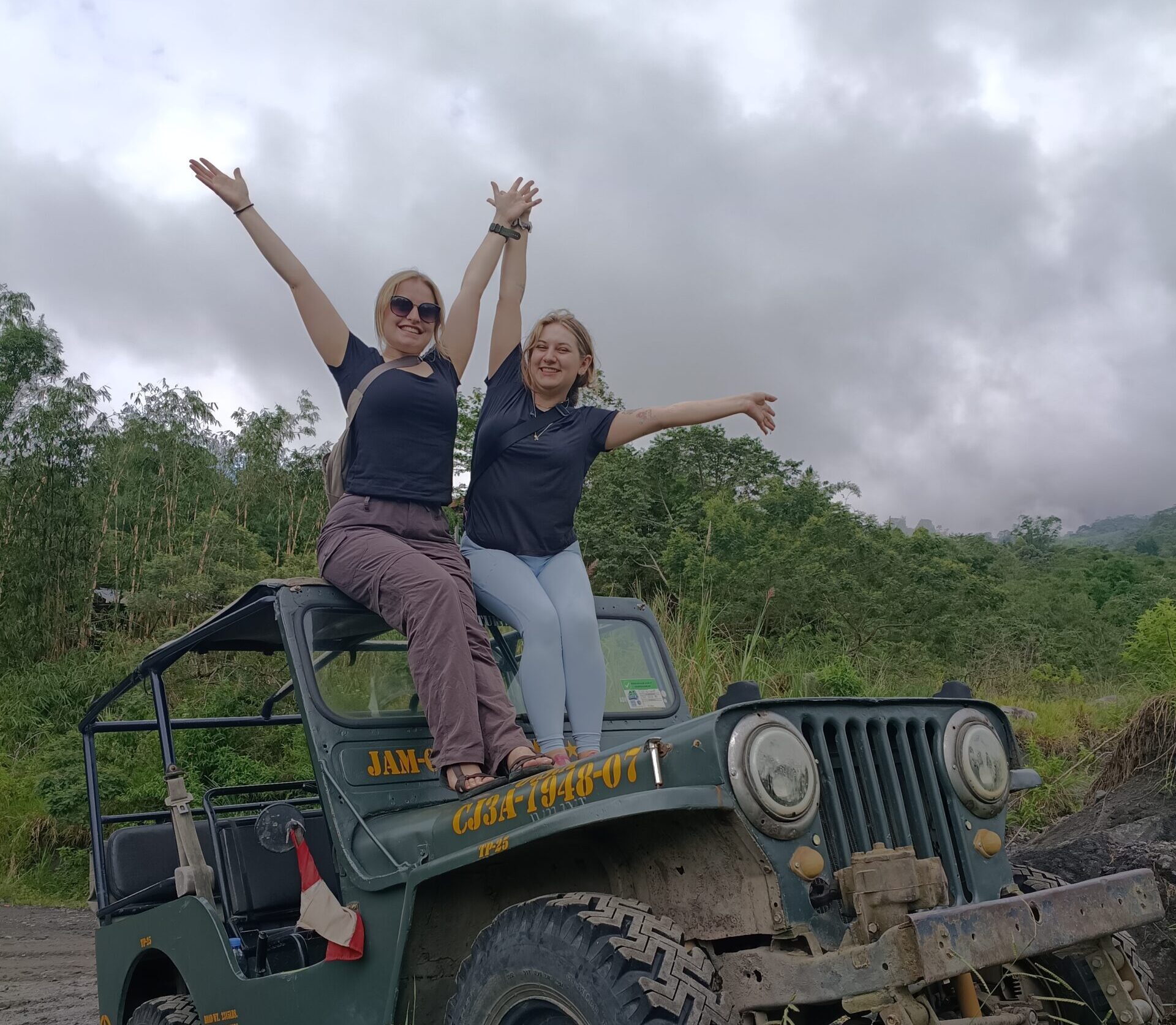Lily Kelsey is a New Colombo Plan Mobility Grant recipient from The Australian National University. Lily undertook the Flexible Language Immersion Program (FLIP) in 2025.
Q: Why did you decide to undertake the Acicis program?
The Flexible Language Immersion Program presented itself as an opportunity for me to improve my Indonesian language and professional skills whilst developing a stonger understanding of Indonesian cultures.
Q: Did you receive a New Colombo Plan Mobility Grant? If so, how did this contribute to your experience in Indonesia?
I received a New Colombo Plan Mobility Grant valued $7,000. The grant covered the Acicis fees which enabled me to use my own money (and my OS-HELP loan) for day-to-day expenses whilst in Indonesia. The grant reduced financial stress and gave me the flexibility to regularly participate in different activities which facilitated a more immersive learning experience. This included visiting UNESCO world heritage sight Borubodur, the Islamic Centre NTB, Batak villages in North Sumatra, and the Baiturrahman Grand Mosque in Banda Aceh. In Yogyakarta I was able to attend Batik classes and Yoga classes which allowed me to learn more about Indonesian history and culture, and converse with locals.
Q: What classes/units are you currently enrolled in?
I studied Bahasa Indonesia Intermediate One. This included individual classes for Tata Bahasa (Grammar), Kosa Kata (Vocabulary), Percakapaan (Conversation), and Menyimak (Listening). The teachers were invested in our learning and the small classes enabled us to progress quickly. A highlight of my language classes was learning amongst people from different countries. The multicultural environment allowed us to exchange insights about each other’s cultures.
I also studied two immersion classes in the Faculty of Social and Political Sciences. This included Australia-Indonesia Relations and Indonesian Social and Political Systems. The immersion classes were a great way to form relationships with Indonesian students.
Q: How will your proficiency in Indonesian Language gained through the Flexible Language Immersion Program influence your future career or study?
Completing the Acicis FLIP program has affirmed my love for Indonesia and desire to improve my Indonesian language skills. It has shown me how exciting and rewarding it is to understand another countries culture and language. I now hope to continue studying Indonesian, even if it is outside of my degree, with the goal of eventually becoming fluent.
I am excited to share my knowledge of Indonesian culture and language back home in Australia, and hope to pursue a career that enables me to contribute to a stronger relationship between Australia and Indonesia, and more broadly the Indo-Pacific region.
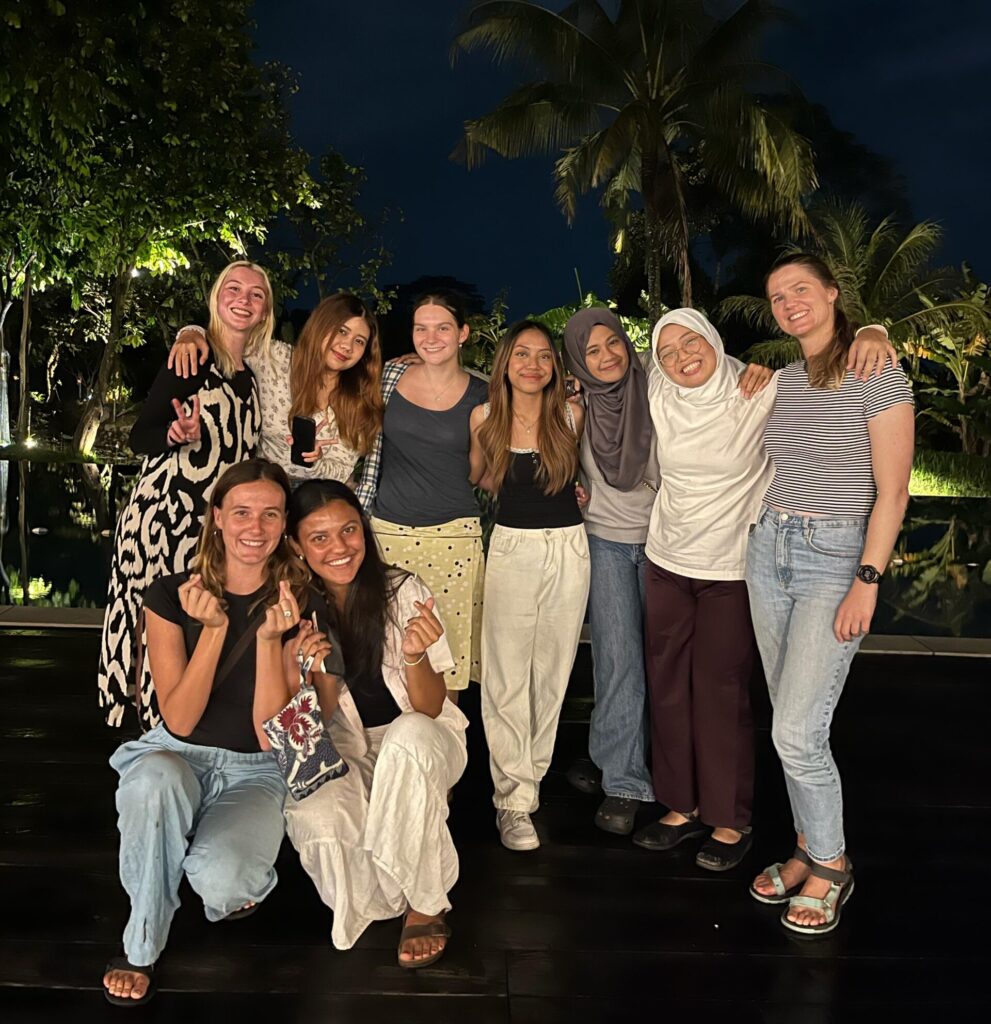
Q: How different is in-country Indonesian language learning to your previous experiences in an Australian classroom environment?
In my in-country language classes I was more motivated because I was driven by a desire to engage in more meaningful conversations with Indonesians outside of the classroom. The language classes were taught entirely in Indonesian, and some of my peers didn’t speak English, which meant I was pushed to find ways to communicate effectively in Indonesian. This immersive environment challenged me more than learning at home and helped accelerate my progress.
Q: Did you undertake an internship or volunteering while in Indonesia?
I undertook an internship at Caritra Indonesia. Caritra Indonesia focuses on urban and rural development through policy research, community health initiatives, and village masterplans. They foster public dialogue regarding development challenges by publishing books, hosting webinars, and facilitating exchanges between academics, various levels of government, and professionals. Through its various divisions, Caritra promotes participatory planning, cultural preservation, and evidence-based solutions for sustainable growth. At my internship I assisted the research and publication division by writing articles focused on comparisons between practices in Indonesia and Australia.
Q: What do you like to do in your spare time in Yogyakarta?
Outside of university I would spend time studying and catching up with friends at cafe’s around my neighbourhood. My Ibu Kos fostered a strong sense of community and I regularly spent time chatting with her, her friends, and hanging out with her daughter and other children in the neighbourhood. I attended morning yoga classes and a few times a week the Acicis group would catch up and have dinner together. On weekends, my friends and I would explore shops and cafe’s in different areas of Yogyakarta.
Q: What challenges did you face during your program and how did you overcome it?
Adapting to an Indonesian work environment was the biggest challenge I faced. I initially felt that my Indonesian language skills were not strong enough to form meaningful connections with my co-workers, which led me to keep to myself. However, as my language ability improved and I gained a better understanding of the workplace culture and routines, I was able to become a valued and included member of the organisation.
Although the internship was challenging at first, it was extremely rewarding. It gave me valuable insight into a professional environment in Indonesia, and if I return to work there in the future, I will feel better equipped to navigate both the workplace culture and the language barrier.
Q: Favourite Indonesian word/phrase? Why?
Kenyang. When I visited my friends village in Lhokseumawe every Ibu I encountered would offer me food. This was a lovely gesture but I was always full from the meal I’d had half an hour earlier. To be polite, I always ate as much as I could before saying, ‘kenyang.’ It became a running joke, and was definitely my most used word of the trip.
Q: What’s the most interesting new discovery or story during your stay in Indonesia?
I had the opportunity to visit Masjid Raya Baiturrahman in Banda Aceh during Ramadan. It was great to learn more about Islamic beliefs and practices in an environment where, in-theory, everyone is a practicing Muslim. I have always found the story of everyone praying and gathering to receive food and other aid at Masjid Raya Baiturrahman after the 2004 Tsunami striking. It was special to visit the mosque, learn more about how the community recovered after the tsunami, and chat with locals about their experiences living in Aceh through conflict, natural disaster, and special autonomy. It was touching listening to people share their stories of why they love Aceh and are grateful to call it home.
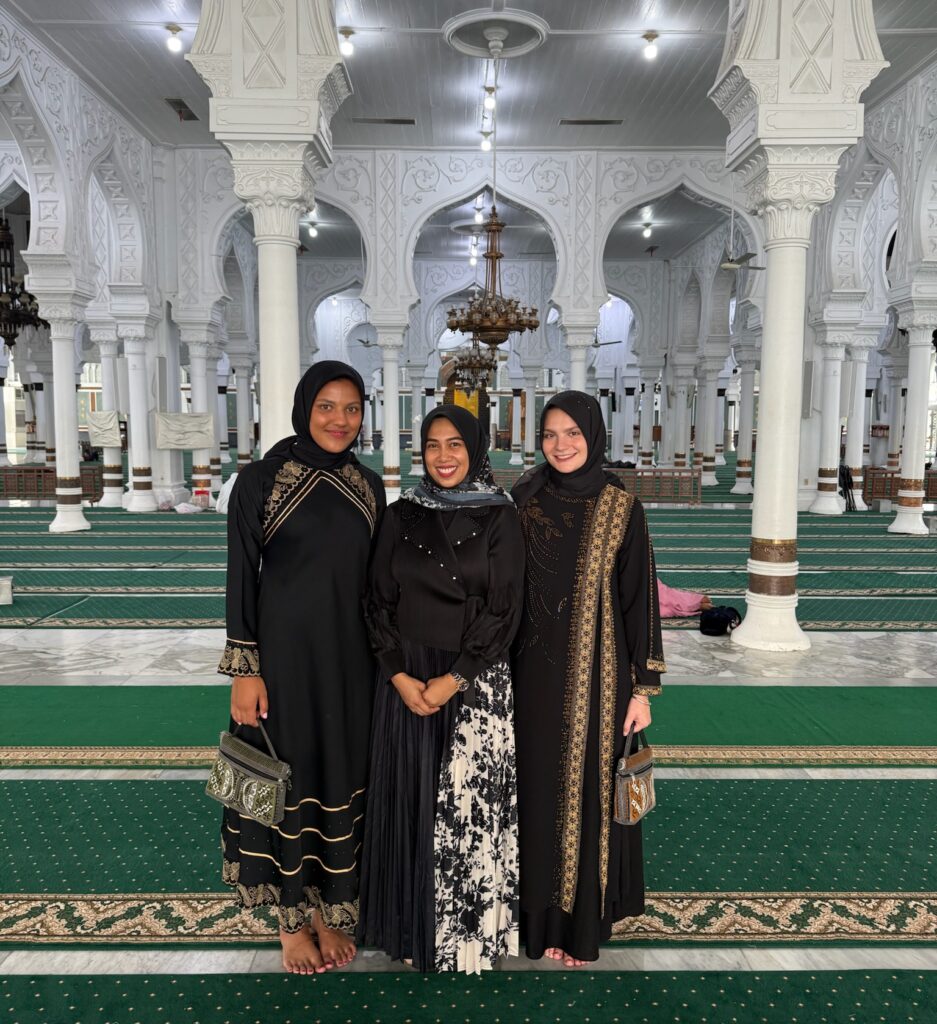
Q: Will you recommend Acicis to other students?
I will recommend Acicis to other students. There is no better way to grow more confident in your language skills and build a strong understanding of Indonesian culture than by studying in-country.
During my FLIP semester and the Short Course last year, being part of the Acicis community was invaluable. I have made life-long friends, and Acicis provides exceptional assistance pre-departure, during orientation, and throughout the semester.
Studying in Yogyakarta pushed me to step outside my comfort zone, strengthened my academic skills, and exposed me to a different way of life. In turn, helping me grow into a more mature and compassionate person. The FLIP program offers a unique opportunity to gain professional experience, significantly improve your language skills, and challenge yourself to life in a new environment. It was an incredibly rewarding experience and a highlight of my undergraduate degree.
Q: Favorite Indonesian food / favorite place to eat?
Ayam Geprek with a side of terong at Wayung Penyetan Mak Tum or Sambel Ijo Anddes
